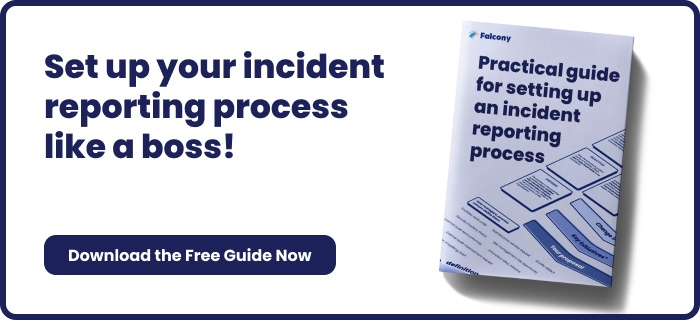Key Metrics to Evaluate Supplier Performance During Audits
In today’s globalised and highly competitive marketplace, maintaining robust supplier relationships is integral to a company’s success.
Regular supplier audits are an essential tool for assessing and ensuring supplier performance, compliance with contractual obligations, and alignment with organisational values. To conduct effective audits, businesses need to focus on key metrics that provide clear insights into a supplier’s performance and overall reliability. This blog outlines some of the most important metrics to evaluate supplier performance during audits.
Quality of Goods and Services
The quality of the products and services provided by a supplier is arguably the most critical metric to consider. During audits, businesses should assess whether the goods meet the required specifications and standards. Factors to examine include product defect rates, conformity to quality certifications (such as ISO 9001), and feedback from end-users. A consistent failure to meet quality expectations can result in costly disruptions to the supply chain and damage to a company’s reputation.
On-time Delivery Performance
Timely delivery is vital for maintaining an efficient supply chain and meeting customer demand. One of the first performance indicators to assess during a supplier audit should be their ability to meet agreed delivery timelines. This metric not only reflects the supplier’s efficiency but also their ability to manage their operations and fulfil commitments. Consistently late deliveries can lead to production delays, inventory shortages, and, ultimately, dissatisfied customers. The audit should track historical on-time performance and identify any recurring issues.
Cost Competitiveness
While quality and delivery times are paramount, cost remains a fundamental aspect of any supplier relationship. A supplier’s ability to provide competitive pricing without compromising on quality or service is a key evaluation metric. Audits should assess whether the supplier’s pricing structure aligns with market trends and your company's cost expectations. This can include reviewing contract terms, exploring potential cost-saving opportunities, and identifying areas where pricing adjustments may be needed.
Compliance with Regulations and Standards
Suppliers must comply with relevant industry regulations, including health and safety standards, environmental requirements, and ethical sourcing practices. During an audit, businesses should review whether their suppliers are adhering to these standards. This includes examining certifications (such as ISO 14001 for environmental management or Fair Trade certification) and ensuring the supplier is meeting all legal and ethical obligations. Non-compliance can expose businesses to legal risks, fines, and reputational damage.
Financial Stability
A supplier’s financial health is a crucial metric to evaluate, as it directly impacts their ability to deliver goods and services reliably. Auditors should examine financial reports and statements to assess the supplier’s liquidity, profitability, and overall financial viability. A supplier facing financial difficulties may struggle to meet obligations or invest in necessary resources, potentially disrupting the supply chain. By reviewing financial stability, companies can anticipate potential risks and identify alternative suppliers if necessary.
Sustainability and Environmental Impact
Increasingly, companies are prioritising sustainability, and suppliers are expected to align with these values. An audit should assess the supplier’s environmental performance, including their carbon footprint, waste management practices, and use of sustainable materials. Companies should ensure that their suppliers are actively working towards reducing their environmental impact and meeting sustainability goals. This is not only essential for corporate social responsibility but also critical for compliance with increasingly stringent environmental regulations.
Responsiveness and Communication
Effective communication between suppliers and buyers is key to a successful partnership. During audits, it is important to evaluate how responsive and proactive the supplier is when addressing queries, issues, and changes in demand. A supplier that is difficult to communicate with or unresponsive to concerns can cause delays and hinder problem resolution, ultimately affecting the business relationship. Clear and timely communication helps foster trust and transparency, making it a crucial metric for supplier evaluation.
Risk Management and Contingency Planning
In today’s volatile business environment, it is vital for suppliers to have effective risk management strategies in place. Audits should evaluate the supplier’s ability to anticipate and mitigate potential risks, such as disruptions in their supply chain, geopolitical instability, or natural disasters. This includes reviewing their contingency planning processes and ensuring they have adequate business continuity measures in place. Suppliers who are prepared for unexpected challenges are more likely to maintain stability and reliability in their operations.
Conclusion
Supplier audits are a critical aspect of risk management, helping businesses to assess and manage the performance of their suppliers. By focusing on key metrics such as quality, delivery performance, cost competitiveness, compliance, financial stability, sustainability, communication, and risk management, companies can ensure that their suppliers continue to meet expectations and contribute to their overall success. Regular evaluation of these metrics helps identify potential issues early, allowing for proactive measures that strengthen supplier relationships and enhance operational efficiency.
If you're looking to implement a mobile tool for your checklists, we've got you covered. Falcony | Audit is easy-to-use, fast to set up, has customisable workflows, vast integration possibilities and more. Contact us for more information.
We are building the world's first operational involvement platform. Our mission is to make the process of finding, sharing, fixing and learning from issues and observations as easy as thinking about them and as rewarding as being remembered for them.
By doing this, we are making work more meaningful for all parties involved.
More information at falcony.io.

Related posts
What is Supplier Audit?
In today’s globalised marketplace, businesses are becoming increasingly reliant on their suppliers...
Sustainability in Supplier Audits
In today’s rapidly evolving business landscape, sustainability has become a crucial factor...
What is the Purpose of Supplier Audit?
Supplier audits are a critical component of effective supply chain management.
They are essential...






